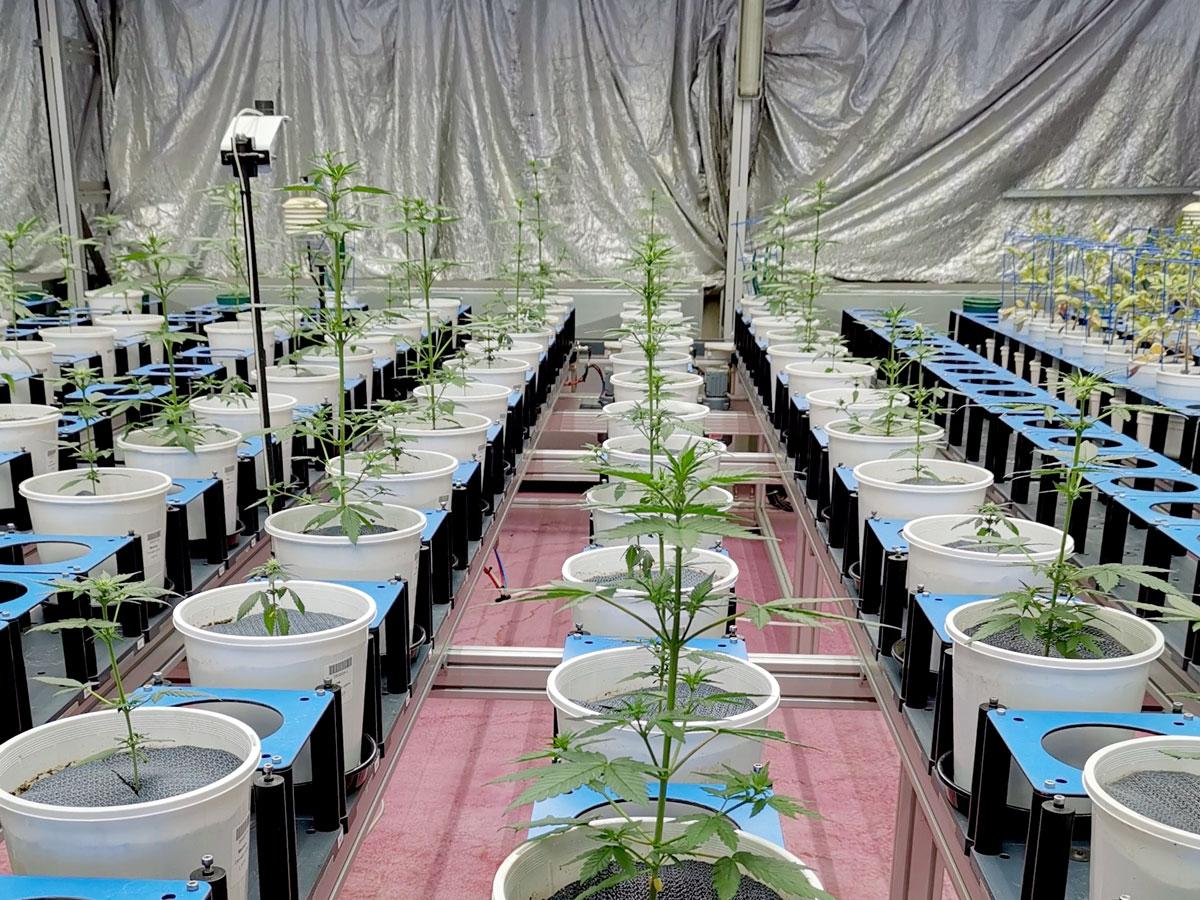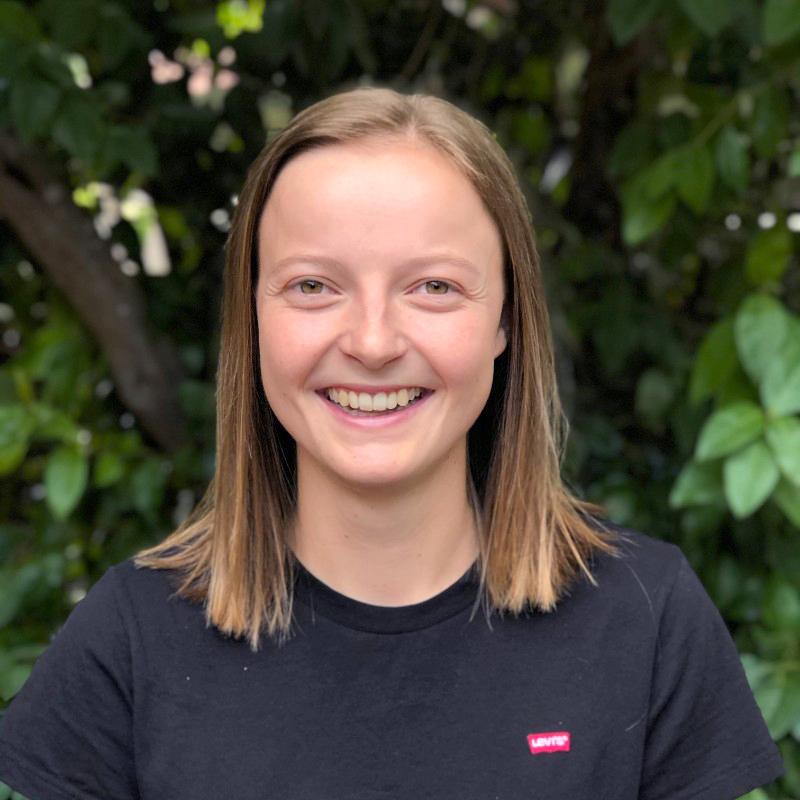Ali Gill’s unlikely journey to a hemp PhD
When Ali Gill enrolled in a science degree, she never thought she’d go on to pursue a PhD to determine the drought tolerance and water use efficiency of industrial hemp.
Ali shares her journey as a University of Adelaide student and researcher, which includes an AgriFutures Horizon Scholarship and now a Fullbright Scholarship.
Follow Ali on Twitter at @aligill_
If someone had told me in Year 12 that seven years later I would be midway through a PhD in plant science, I would have laughed. My career aspirations leaving high school were broad and, at that stage, agriculture was not on the cards.
Going into a Bachelor of Science (Advanced) at the University of Adelaide seemed like the best way to keep my options open. As part of this, I applied for the AgriFutures Horizon Scholarship Program early in my first year and was both incredibly honoured, but also very surprised, to be successful. Little did I know, the Horizon Scholarship would transform my career.
"Going into a Bachelor of Science (Advanced) at the University of Adelaide seemed like the best way to keep my options open."Ali Gill
The Horizon Scholarship was pivotal in igniting my passion for plant science and agriculture. Unlike many of the other scholars, I did not grow up on a farm, nor do I have relatives in agricultural careers.
I had big ambitions to be a leader but did not have much of an understanding of agriculture at the time. The yearly Horizon Workshops were not only an unparalleled opportunity for networking, but also exponentially increased my agricultural knowledge base. Coupled with two-week long industry placements each year, I quickly discovered a passion for plant science research.

Ali on Horizon placement at Advanta Seeds in Toowoomba.
I was very lucky to undertake placements supported by the scholarship at the CSIRO Cotton Group in Canberra, Advanta Seeds in Toowoomba and SARDI in Adelaide. I strongly believe that research is a vital step in improving efficiency and sustainability in agriculture, and these placements inspired me to aim high.
After completing my Bachelor of Science (Advanced) with majors in botany and soil science, I went straight into Honours in Plant Science at the University of Adelaide.
Supervised by Professor Rachel Burton, I aimed to characterise the root morphology and root exudates of native, commercial species of saltbush. Saltbush as a species, can survive in extraordinarily high levels of soil salinity, and we proposed that the release of exudates from the roots may assist in this salinity tolerance.
While honours threw me in the deep end, I loved every minute, particularly finding new information that has never been published before. I originally had plans to find a job in the industry after my honours year, but I quickly realised I wanted to continue the research pathway and signed up for a PhD midway through the year.
I am now one and a half years into my PhD, and still enjoying the challenges that research brings. My project aims to determine the drought tolerance and water use efficiency of industrial hemp (Cannabis sativa).
Hemp is an emerging industry that has thousands of applications from textiles to biofuels to hemp concrete. Hemp has been selectively bred to produce low concentrations of Δ9-tetrahydrocannabinol (THC) and therefore does not have psychoactive properties. It shows such potential to be a sustainable crop of the future. It is very exciting to be researching a plant that could be a game-changer for agriculture in Australia.

A highlight of my PhD so far has been using state-of-the-art facilities at The Plant Accelerator, Australian Plant Phenomics Centre, to grow hemp varieties at different water levels.
Although Cannabis has been grown for thousands of years, little is known about hemp drought tolerance and water use, as well as other growing conditions, predominantly due to the stigma surrounding THC. With this knowledge, we can establish which hemp cultivars are most appropriate for consideration by Australian primary producers wishing to diversify their crop options.
I have ambitious aspirations for my research, and I am hopeful it can assist in creating a sustainable hemp cropping industry here in Australia.
An even bigger highlight of my PhD so far is being awarded a prestigious Fulbright Scholarship to undertake part of my research in the United States. I will be visiting the Agroecology Lab at the University of California, Berkeley for 9 months from early 2022, COVID-19 permitting.
Led by Tim Bowles, this lab aims to create productive, resilient, and healthy agricultural systems, with a focus on rhizosphere ecology, soil health and ecosystem services, climate change and urban agriculture.
This experience will be invaluable as it will not only elevate the impact of my PhD research but will also benefit agricultural industries in Australia and the US.
Like the Horizon Scholarship, I am certain that the Fulbright Scholarship will play a pivotal part in shaping the next years of my career. I am particularly excited to learn from the established industrial hemp industry in the US and bring this knowledge back to Australia. As well as the professional experience, I am looking forward to embracing another culture and fostering collaborations across the globe.
Personally, it is hard to predict how my career will progress over the years. Research itself is dynamic, and if the last few years are anything to go by, who knows where the next will take me! Taking each opportunity as it presents itself has placed me in good stead so far.
Finally, I cannot thank AgriFutures Australia and the Horizon Scholarship Program enough for the exceptional opportunities and support throughout my undergraduate years. The Horizon Scholarship continues to play a vital role in diversifying future generations of agricultural leaders. The future is looking bright, and I would not be where I am today without the fantastic experiences I gained through the Horizon Scholarship Program.
This article was originally published by Agrifutures as From a game-changing scholarship to cutting-edge research: Ali Gill’s unlikely journey to a hemp PhD.

